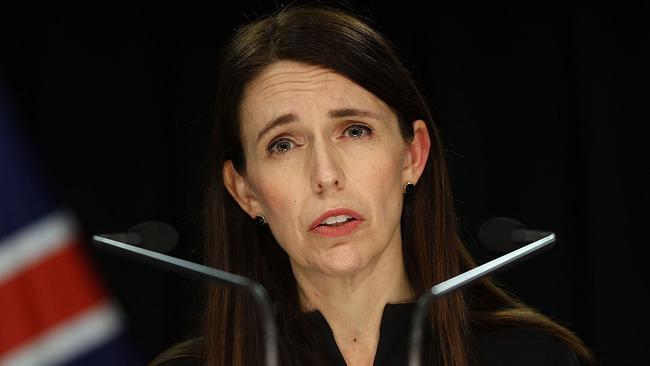Jacinda Ardern’s re-election hopes risk being killed with kindness
New Zealand Labour’s support is at its lowest since Jacinda Ardern became leader, and there’s a real prospect her government will be rejected.

For a year Jacinda Ardern has been trying to find time to get married – an event she now accepts is unlikely before the election due next year.
“We had loosely said this summer, but then we were just too slow and our friends are too busy, so we’ve probably left it a little bit too late,” Ms Ardern, 42, said of her long-delayed plans to marry the filmmaker Clarke Gayford, father of her daughter Neve Te Aroha, 4. “Barring something spontaneous, I can’t see how that’s going to happen.”
It was an uncharacteristically wistful moment for the usually carefully organised woman who soared from backroom obscurity five years ago to lead the Labour Party into office. Only seven weeks before that poll, her dispirited predecessor pleaded with her to take over after a decade in opposition.
The younger daughter of devout, small-town Mormons (she renounced the faith in her early 20s, favouring equal rights for LGBT people), Ms Ardern made her name on the left when, upon her sweeping re-election in 2020, she secured New Zealand’s first majority government in 20 years and the world’s most openly gay parliament, and one in which women held half the 120 seats.
Yet two years on her government is eyeing defeat. One of the nation’s most watched polls last week put Labour support at its lowest since Ms Ardern became leader, with the real prospect that her government will be rejected.
Close colleagues have turned against her, notably Winston Peters, a wily veteran who was Ms Ardern’s deputy when his populist New Zealand First Party formed a coalition with Labour. “Inflation and cost-of-living rises are not susceptible to the Prime Minister’s pleas for kindness and compassion,” Mr Peters, 77, who has been in parliament for much of the past 40 years, said. “In so many areas Labour and the Prime Minister’s lack of competence are obvious.”
Mr Peters’s views reflect those who believe the qualities that elevated Ms Ardern internationally – her civility, empathy and compassion, especially after the massacre of 51 Muslim worshippers in 2019 – while admirable, fall short of the harder leadership the nation now needs.
“This government has squandered political capital failing to understand the Clinton dictum, ‘It’s the economy, stupid’,” Mr Peters said.
While not matching the economic challenges facing New Zealand, billowing youth and gang crime in a country that thinks of itself safer than most has alarmed many – and much of the increase have occurred on Ms Ardern’s watch. Ram raids are up by 500 per cent. Gun crime in Auckland, the largest city, has increased by more than 50 per cent in a decade, much of it attributed to the arrival of bikie gangs.
High levels of truancy allied to the young age of many of the criminals, emboldened by the knowledge that youth sentencing laws provided mild consequences, have led to widespread perception that Ms Ardern is soft on crime.
“That’s one of the reasons why Ardern is becoming unpopular,” Greg Newbold, emeritus professor of criminology at the University of Canterbury, said. “Because this whole kindness thing means people can do what the hell they want, especially young offenders. That’s the perception.”
She is also the victim of her own aspiration, having undertaken to defeat homelessness and lift children out of poverty. After promising to build 100,000 extra state houses for the poor – 10,000 by 2021 – the government had produced a mere 1366 by July.
Instead, thousands of homeless people are crammed into motels with the government paying the bills, while the numbers of families on housing waiting lists has soared by 400 per cent.
THE TIMES



To join the conversation, please log in. Don't have an account? Register
Join the conversation, you are commenting as Logout